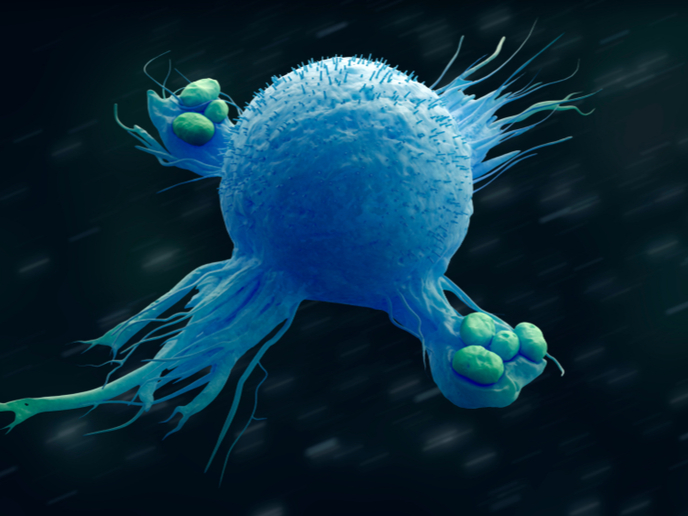Developing new therapies to counter lysosomal dysfunction
You may not have heard of lysosomes, but they are critical to the proper functioning of our cells. Lysosomes are small sacs within cells containing digestive enzymes, which help to recycle old parts of a cell, remove toxins and even fight invading viruses and bacteria. “Lysosomes also act as ‘air traffic controllers’ that only allow cells to grow when the environment is adequate,” explains Maria Carmo-Fonseca(opens in new window), professor at the University of Lisbon Medical School and LysoMod(opens in new window) project coordinator. If lysosomes don’t work properly, this can lead to a range of diseases, from neurodegenerative disorders to lysosomal storage diseases(opens in new window) (LSDs). LSDs are inherited disorders characterised by an abnormal build-up of various toxic materials in the cells. “Although rare, these diseases often affect children and may delay intellectual and physical development,” notes Carmo-Fonseca. “Notably, mutations that cause Gaucher’s disease(opens in new window), one of the most common lysosomal storage disorders, also increase the risk of Parkinson’s disease.” In the EU-funded LysoMod project, undertaken with the support of the Marie Skłodowska-Curie Actions programme(opens in new window), a consortium of researchers sought to innovate in the area of personalised medicine for disorders linked to lysosomal dysfunction. The aim was to better understand the role lysosomes play within cells, and develop new treatments to improve the quality of life for people who suffer from related health problems. LysoMod aimed to further develop existing therapies for LSDs, find new therapeutic targets and investigate the mechanisms underpinning lysosomal functions within cells.
Developing a new model to study LSDs
The researchers used cells derived from patients and genetically manipulated mouse models to investigate LSDs. They developed and tested a new model that uses neural stem cells obtained from the brain of newborn mice, which were induced to differentiate in culture to form the type of neurons that are altered in Parkinson’s disease. “We discovered that ‘sick’ lysosomes send signals to the cell nucleus and change gene expression, affecting the ability of neurons to form synapses,” explains Carmo-Fonseca. One important result from preclinical and clinical studies was that a small molecule known as acetyl-leucine improved neurological symptoms in patients with LSD Niemann-Pick C(opens in new window) – a rare inherited disease.
Staff exchange programme to foster innovation
LysoMod introduced a cross-disciplinary exchange programme to catalyse innovation in LSD treatments. Scientists involved in the project undertook a series of placements in universities and research institutions elsewhere in the world. The consortium, which featured scientists from Europe, North and South America, and Israel, was made up of academic and non-academic partners, with expertise in a range of fields from pharmacology to cell biology and genetics. This exchange network also helped to ensure a rapid transfer of knowledge between organisations and collaborators in the process of applying for diagnostics and clinical trials.
The research continues
Though the LysoMod project has ended, the joint research initiatives culminated in the approval by the European Commission of a new follow-up project, RiboMed. This project will build upon LysoMod’s research by investigating ribonucleic acid (RNA) biology and its potential in modern medicine. “Once we publish our latest results linking lysosome function to control of RNA metabolism, the next step will be to submit future grant applications to support further research on this topic,” says Carmo-Fonseca.







